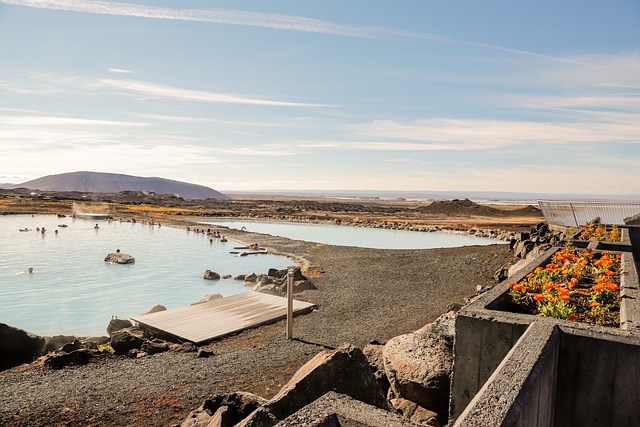
Publicado dia 03/04/2025
rtp lisboa77 ✅ RTP Lisboa77: A Journey Through the Evolution of Television Broadcasting in Portugal

rtp lisboa77, 03/04/2025
Olá, amigos! O foco do artigo de hoje é a explicação de rtp lisboa77, com um complemento sobre rtp lisboa77. Obrigado por acompanhar!
In the landscape of Portuguese media, one institution stands prominently among the rest: RTP, or Rádio e Televisão de Portugal. Established to serve as the backbone of public broadcasting in the country, RTP has evolved over the decades in response to the changing needs of society and technology. Among the numerous milestones in its extensive history, the Lisbon 77 fair serves as a pivotal moment that showcases the evolution of television broadcasting in Portugal and its significance in a broader cultural context.
The inception of RTP in the mid-20th century marked the beginning of a new era in Portuguese media, primarily focusing on fostering national identity and culture. This endeavor became more pronounced during significant events such as Lisbon 77, where the dynamics of technology and social expectations intersected in unprecedented ways. As Portugal emerged from a period of political transformation, including the end of dictatorship and the subsequent democratization of its institutions, RTP found itself at the forefront of this shift, embracing progressive changes that resonated with the public.
Lisbon 77 occurred against the backdrop of a rapidly evolving media landscape worldwide, particularly with the influence of color broadcasting and advancements in transmission technology. The international fair was not only a showcase of technological prowess but also a unique platform where industry leaders, government officials, and media representatives convened to discuss the future of broadcasting. It was during this time that RTP leveraged the opportunity to highlight its commitments to innovation, creativity, and public service, addressing the emerging aspirations of a newly liberated Portugal.
One of the remarkable aspects of RTP’s involvement in Lisbon 77 was its commitment to local culture. The organization emphasized the essential role that media plays in fostering a sense of belonging and cultural pride among the Portuguese people. The developments presented during that event emphasized RTP's dedication to producing content that reflected the rich tapestry of Portuguese life, embracing regional diversity and promoting the arts, music, and storytelling that are intrinsic to the national character.
As technology enhanced the capabilities of visual storytelling, RTP also began experimenting with various formats and genres. Lisbon 77 allowed the organization to introduce programming that engaged audiences in interactive ways, an approach that was relatively novel for the time. Debates, documentaries, and live performances became more prevalent, setting the stage for a richer broadcasting experience that would resonate with viewers across generations.
RTP’s historical involvement in events such as Lisbon 77 also served as a testament to the broader implications of television in shaping public discourse. By providing a platform for diverse voices, the organization underscored the significance of free speech and democratic engagement during a time when these values were being redefined. It also created an opportunity for viewers to gain insight into various perspectives, thus promoting dialogue and fostering a climate of mutual respect.rtp lisboa77
Despite the progress that followed, RTP faced challenges as it navigated the complexities of transitioning media landscapes. The penetration of commercial television and the rise of global digital platforms tested RTP’s resolve to serve the public interest. Nevertheless, the organization has consistently reaffirmed its mission, striving to maintain high journalistic standards and uphold the principles of fairness and impartiality in broadcasting.rtp lisboa77
Essas informações adicionais nos ajudam a entender melhor a complexidade de rtp lisboa77.
In the years following Lisbon 77, RTP embraced the rapid advancements in technology that transformed the way audiences consumed media. The digital age introduced new formats such as streaming services, which have altered traditional viewing habits and expectations. As a public broadcaster, RTP redoubled its efforts to adapt to this new reality, enhancing its online presence and ensuring that quality content remains accessible to all segments of society.rtp lisboa77
Moreover, RTP's initiatives underscore a growing recognition of the importance of inclusivity in media representation. The organization has made considerable strides toward amplifying marginalized voices and ensuring that diverse stories are told through various platforms. This progressive ethos mirrors the collective social consciousness of modern Portugal, wherein inclusion and representation have become pillars of contemporary media discussions.rtp lisboa77

In conclusion, RTP Lisboa77 stands as a landmark chapter in the history of Portuguese broadcasting — a defining moment that encapsulated not only the technological changes of the time but also the societal shifts taking place in Portugal. The event enabled RTP to affirm its role as a cultural curator and a champion for democratic values, albeit in the face of ongoing challenges. As technology continues to evolve and the media landscape becomes increasingly complex, RTP’s commitment to innovation, public service, and cultural representation remains crucial, ensuring that it continues to resonate with and serve the diverse tapestry of Portuguese society for generations to come.rtp lisboa77

A explicação sobre rtp lisboa77 e rtp lisboa77 chegou ao fim, esperamos que tenha sido proveitosa!